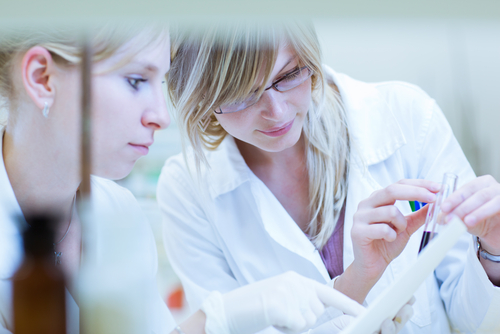Acer Plans Pivotal Trial of Edsivo in COL3A1-positive vEDS
Written by |

Following a meeting with the U.S. Food and Drug Administration (FDA), Acer Therapeutics is planning to launch a potentially pivotal clinical trial to evaluate the safety and efficacy of its investigational therapy Edsivo (celiprolol).
Edsivo was found in a small earlier trial to significantly reduce the rate of artery ruptures in people with COL3A1-positive vascular Ehlers-Danlos syndrome, known as vEDS. However, the FDA rejected Acer’s application for Edsivo’s approval, saying there was insufficient evidence of the therapy’s efficacy.
The pharmaceutical company recently met with the regulatory agency to confer on various aspects of a new planned study.
In the meeting, Acer and the FDA discussed the use of a virtual clinical trial design, a plan for statistical analyses that takes into account the rarity of vEDS, and the specific types of data that will be collected to assess the treatment’s safety and effectiveness.
“We appreciate the guidance and flexibility provided by FDA on the design of this proposed clinical trial,” Chris Schelling, CEO and founder of Acer, said in a press release.
Acer is planning to later this year submit a protocol for the planned study, along with other regulatory requirements needed for clinical trials.
The study is expected to enroll about 200 people with COL3A1-positive vEDS in the U.S., and will take about 3.5 years to complete once it is fully enrolled.
Additionally, the company intends to request breakthrough therapy designation — which the FDA uses to speed up the development and review of treatments for serious illnesses — as well as to work with the FDA to reach agreement on a special protocol assessment. That essentially means that the FDA would agree that the planned trial is designed in a way that could support regulatory approval if the results are positive.
“Over the next six months, we intend to work closely with FDA to finalize the protocol for the pivotal trial, collaborate with vEDS advocacy groups to identify COL3A1+ patients who may be interested in participating in the trial in order to expedite enrollment, and achieve [the] first patient dosed [milestone] as quickly as possible,” Schelling said.
vEDS is generally considered the most severe type of EDS. Like other forms of the disease, it is characterized by limited production — often due to mutations in the COL3A1 gene — of the structural protein collagen. Edsivo was originally developed to treat hypertension (high blood pressure), and is being investigated for vEDS because it may increase the production of collagen in blood vessels and lessen the chance of damage to blood vessels.
Results from a previous Phase 4 clinical trial called BBEST (NCT00190411) showed that, compared with a placebo, treatment with Edsivo significantly reduced the rate of artery ruptures (20% vs. 50%), and of intestinal or uterine ruptures (24% vs. 61%) in people with vEDS. The trial had enrolled 53 people with vEDS, including 33 — more than 60% of the participants — with COL3A1-positive vEDS. All of the participants received a dosage of 200 mg taken by mouth twice per day.
Based largely on these findings, Acer applied for FDA approval of Edsivo in 2018, but the agency rejected the application, citing a need for more evidence of the investigational therapy’s efficacy.
Acer issued a formal appeal of this rejection in late 2019, but the FDA rejected that appeal, reaffirming its prior assessment that further clinical trial data are needed before Edsivo could be approved. As such, Acer is planning the new trial.
“This trial, along with the results from the prior BBEST trial, should answer whether Edsivo demonstrates substantial evidence of effectiveness by reducing vEDS-related events,” Schelling said.
The company said it will need to raise about $10 million to finance the planned trial.
“Our progress to date on the EDSIVO program is the direct result of our unwavering and ongoing commitment to patients with rare diseases,” Schelling said. “We look forward to continuing its development for treatment of vEDS patients who desperately need a therapy.”





